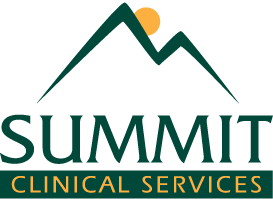Heading back to school this fall I am getting to watch my son learn to write this year. He is very entertainingly learning to spell. (He recently wrote a note to his friend “Will-Yum” and a label for his “swim-soots” drawer.) But it has also been fascinating to see what topics he chooses to write about. Most recently, he made lists of things he loves, things he hates, and a checklist of things he wants to do this year (ride bikes and eat more junk food). It made me think about the very human act of writing and how it can affect our feelings and the way we craft our day-to-day lives.
There is good evidence that, for some people, writing can foster contentment and reduce symptoms of mental illness. If you’d like to give it a try, I’ve run through a few different types of writing that seem to be helpful.
A few generalities to keep in mind before starting:
– Like most mental health behaviors, it doesn’t work for everyone. However, it is free, readily accessible, and usually worth a shot.
– It doesn’t need to (and sometimes shouldn’t) be “good.” The purpose of writing is to feel better, so it is actually a good time to practice quieting that inner critic. If you hated formal writing in school, you may find it more enjoyable now that the grades, edits, and grammar police have exited the scene.
– The amount, frequency or type of writing that is helpful can vary widely from person to person. Find out what works for you, whether it is once a year, once a day or anywhere in between.
Here are a few types of writing that have been linked to improving mental health:
Mood Tracking:
In a practical sense, some people use writing to track their mood and recent events or activities, to help make connections between them. Some things you can think about including are:
– Recent activities (arguing, exercising, positive socialization, working, etc.)
– Sleep time and quality
– Drug, alcohol, caffeine, or nicotine use
– Medication changes
– Visits and topics covered in psychotherapy.
Free writing:
Try to write down what comes into your head. Hold off on editing yourself it you can. Just take some time to write down whatever you are thinking and follow where your thoughts take you.
Free write about the present:
Some people find it helpful to write about difficult situations or relationships they are dealing with currently. Like talk therapy, writing can be a way to identify feelings of problems and identify different perspectives and notice or challenge our common thought patterns.
Free write about the past:
Writing about our past can shape the way we think about them. In the field of mental health, we sometimes think about our identities, belief systems or memories as stories we tell ourselves or stories that we have been told by others. Writing allows us the opportunity to rewrite those narratives.
Free write about the future:
Keeping track of future goals and writing about anxieties about upcoming events can both be helpful to some people.
Gratitude Journaling:
There is evidence that sitting down and making a list of things that you are grateful for can improve your mental health. This is often hard when you are feeling particularly down. But, even a short list can be helpful. Some common items people include are supportive friends or family; access to things like shelter, food or medical care, jobs; financial security or a job or hobby that they enjoy. It is sometimes more interesting (and fun) to add small or unusual things to your gratitude list, for example: that fantastic dessert yesterday, the feeling of sand on your feet at the beach, cuddles from your dog, or your neighbor’s terrible jokes.
Creative Writing:
Any type of creative writing: poems, short stories, graphic novels, personal essays can be helpful for some people. These can be a distraction, a gift to others or a way to create beauty or humor from painful experiences.
If you’re interested in more information on writing and mental health, here are a few great books to consider reading.
DeSalvo L. Writing as a way of healing: how telling our stories transforms our lives. Boston: Beacon Press; 1999.
Dilley RB. Writing your way to healing and wholeness: simple exercises: exploring your past and changing your future. Glendale (AZ): Robin B Dilley, PhD, Ltd; 1999.
-Rebecca Durkin, M.D.




